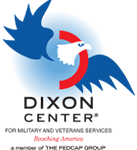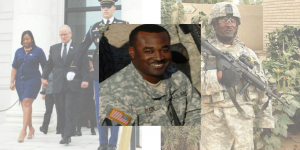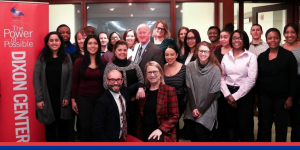Even though veterans make up only eight percent of the U.S. population, they are twice as likely to own a business as their civilian counterparts. In fact, close to 2.5 million businesses in the United States boast a majority ownership by veterans, representing nine percent of all U.S. businesses.
There’s a reason for this. Underneath their desire to be entrepreneurs and run their own operations lies a steely determination to succeed. In a corporate world where dynamics are ever-changing, a veteran’s training and experience translates to drive, focus and the ability to just “do.”
Roberto Barragan, president and CEO of VEDC, a Community Development Financial Institution, believes that small businesses are driving the economic revitalization of our country. Since 1976, VEDC has assisted more than 108,000 businesses in creating and retaining more than 200,000 jobs, opening more than 2,050 new businesses, and graduating over 3,400 individuals from Entrepreneurial Training Programs. VEDC has also provided more than $400 million in direct and guaranteed lending to small businesses across the Nation.
Two years ago, VEDC received funding to conduct a study on veteran-owned small businesses with the end goal being the design of a small business loan program specific to veterans. Rather than simply put a “veteran-friendly” banner on a program and provide a discount on fees, VEDC dug into the realities facing veterans who own small businesses, which led to a realization that there needed to be a change in underwriting criteria.
Barragan explains that many veterans show weakened cash flow because of deployment, which also means credit card balances may be high and collateral may simply not exist. The traditional bank loan program would deny these applicants rather than working with the credit and cash realities of veterans.
As a first step toward building its veteran lending program, VEDC expanded its underwriting to examine not just cash, collateral and credit but also the operator. “For many vets, there is a dream,” says Barragan, “And it’s our job to make it happen.” VEDC views the creation and expansion of small business as a viable alternative for this population.
It’s an alternative with a risk, but one that VEDC estimates has a 95 percent success rate. The typical loss history at a bank averages two percent; community-based lending can run as high as 10 percent; and microlending sees loss histories as high as 25 percent.
Over 20 years, VEDC has packaged or directly lent $400 million; of that, five percent has been with veteran-owned businesses. In the company’s experience, veterans have a higher propensity to pay back their loans and higher sense of duty of obligations. As Barragan describes it, “They don’t walk away from debt easily.”
Russ Grant personifies that line of thinking. The former service member opened his own bar and restaurant in Chicago called Parts & Labor. He put a lot of his own money into it, and VEDC financed the rest. The burgers and drinks favorite is going into its third year in business and now boasts a sister restaurant, the cash-only pizza and beer hangout The Boiler Room.
In addition to revisiting its underwriting practices for veterans, VEDC desired a better understanding of the business from the veterans’ perspectives. “We know how to lend and reach into underserved communities but we needed an assist on this particular population,” said Barragan.
In 2012, UBS partnered with VEDC to expand its lending nationally and deploy $35 million in UBS lines of credit. The global finance leader also connected VEDC to the expertise of Dixon Center for Military and Veterans Services for guidance on the best ways to deliver a program that will set veterans up for entrepreneurial success.
Dixon Center, for example, encouraged VEDC to include robust technical assistance and business education on topics such as reading a ledger, developing a marketing plan, or risk assessment and planning.
Barragan questions why more financial institutions aren’t focused on veteran-owned small businesses. With an increasing number of returning veterans, VEDC sees an obligation to enable the successful reintegration of veterans into communities.
“Partnerships between organizations as varied as UBS, VEDC and Dixon Center for Military and Veterans Services are coming up with solutions that might make the difference,” says Barragan, who will be holding a roundtable in Chicago July 13 with veteran service organizations in advance of the VEDC program launch this fall. “That’s the need. That’s our vision.”
This article was originally published on HuffPost on July 11, 2016.
https://www.huffpost.com/entry/investing-in-a-new-model_b_10927278

 Donnie Dixon talked about joining the military practically from the time he said his first words. At 18, he enlisted in the U.S. Army and set off for boot camp. From his first days in boot camp until his untimely death at 37, Staff Sergeant Dixon was the epitome of a soldier’s hero.
Donnie Dixon talked about joining the military practically from the time he said his first words. At 18, he enlisted in the U.S. Army and set off for boot camp. From his first days in boot camp until his untimely death at 37, Staff Sergeant Dixon was the epitome of a soldier’s hero.
